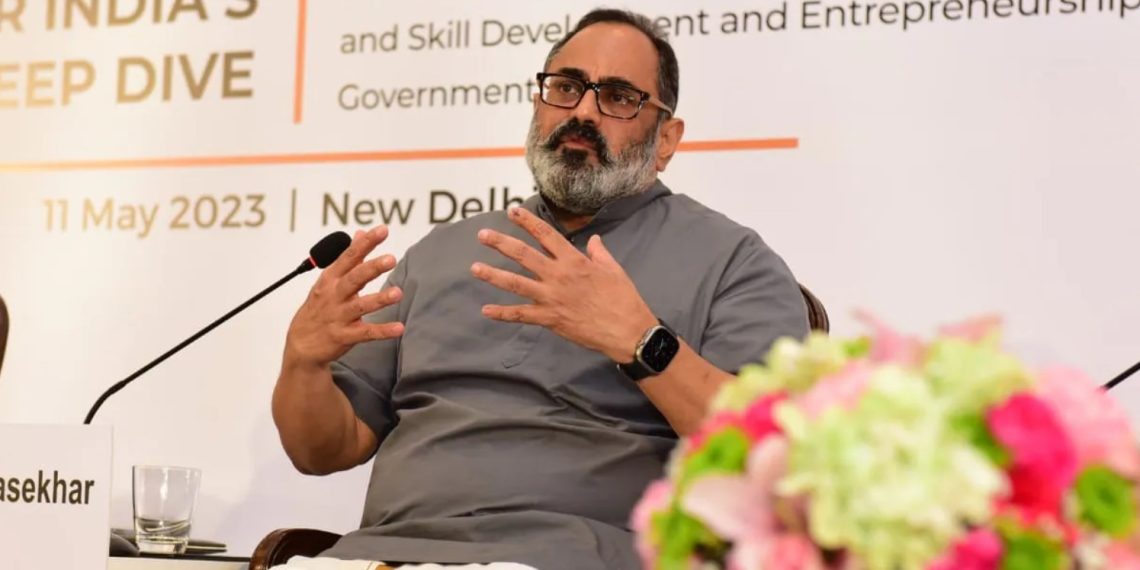In a significant move to safeguard the interests of digital citizens, Rajeev Chandrasekhar, the Minister of State for Electronics and Information Technology, announced that the Indian government will regulate artificial intelligence (AI). Speaking at a presentation on the progress of digitization in India under Prime Minister Narendra Modi’s leadership, Chandrasekhar emphasized the importance of ensuring AI is used for good and not to harm individuals.
Regulating AI for the Benefit of Digital Citizens
Chandrasekhar acknowledged the rapid growth of India’s digital landscape, with over 85 crore Indians currently using the internet, a number expected to rise to 120 crores by 2025. However, he also highlighted the increasing challenges posed by criminal activities, online toxicity, and harassment. To address these concerns, the government is committed to regulating AI effectively, ensuring that it doesn’t harm digital citizens.
The Digital India Bill and AI Regulation
As part of the government’s efforts, the Digital India Bill is being developed, which will incorporate provisions for regulating AI. This legislation aims to strike a balance between promoting technological advancements and protecting the rights, privacy, and safety of digital citizens. By introducing regulations for AI, the government seeks to prevent its misuse and enhance accountability in the digital realm.
Addressing Rising Threats and Challenges
Chandrasekhar expressed concerns about the growing incidents of doxing, where individuals’ private and identifying details are shared online without consent. He emphasized that the central government will take stringent measures to combat such malicious activities. The focus is on creating a secure and safe digital environment where individuals can freely participate without fear of online harassment or privacy breaches.
Consultations and Personal Data Protection Bill
To ensure comprehensive legislation, the government plans to initiate consultations with various stakeholders on the Digital India Bill. Additionally, a new personal data protection bill will be introduced in Parliament. These measures demonstrate the government’s commitment to strengthening data privacy and security frameworks, establishing clear guidelines for handling personal data, and fostering trust in digital transactions.
Balancing Regulation and Innovation
While the government is determined to regulate AI effectively, it recognizes the importance of nurturing innovation in the field. The aim is to strike a balance between regulation and fostering AI advancements. This approach seeks to encourage responsible AI use while providing a conducive environment for innovation, research, and development in emerging technologies.
India’s Sovereign Approach to AI Regulation
Chandrasekhar’s comments regarding India’s preference for its own experts and viewpoints on AI norms reflect the country’s sovereign approach to regulation. While considering global perspectives, India recognizes the need for context-specific regulations that address its unique challenges and opportunities. By shaping AI regulations domestically, India aims to harness the potential of AI for societal benefits while ensuring ethical use and protecting digital citizens.
Promoting Responsible AI Practices
The government’s decision to regulate AI exemplifies its commitment to promoting responsible AI practices and protecting digital citizens’ interests. It acknowledges the transformative power of AI while understanding the potential risks associated with its unregulated use. By enacting robust regulations, the government aims to create an ecosystem where AI innovation flourishes alongside the safety, security, and well-being of Indian citizens.
Looking Ahead
As India continues its journey toward digital transformation, the government’s focus on regulating AI and ensuring digital safety remains crucial. With consultations and the development of the Digital India Bill underway, stakeholders from various sectors will have an opportunity to contribute to the shaping of AI regulations in the country. This collaborative approach is expected to strengthen India’s position as a global leader in responsible AI adoption and foster a secure and inclusive digital future for all citizens.











































































































































































